Peace, a faraway place
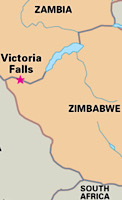 It was a clever plan. The warring sides could meet for peace talks on a train straddling the border. The negotiating table in the dining car was to be bang in the middle of the line dividing two countries.
It was a clever plan. The warring sides could meet for peace talks on a train straddling the border. The negotiating table in the dining car was to be bang in the middle of the line dividing two countries.
No transgressions across the line were to be allowed. If cool heads prevailed a ceasefire could be reached and further negotiations pursued.
As current wars bear testimony – and war since time immemorial – it won’t work when belligerents demand drastic concessions from each other.
 It is exactly 50 years since the “Peace Train” sat on the railway bridge at Victoria Falls between Zambia and Zimbabwe, then known as Rhodesia, bringing together black nationalists and the leaders of a white minority government.
It is exactly 50 years since the “Peace Train” sat on the railway bridge at Victoria Falls between Zambia and Zimbabwe, then known as Rhodesia, bringing together black nationalists and the leaders of a white minority government.
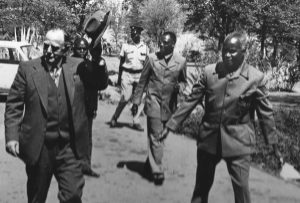 But it quickly became obvious the train wasn’t going anywhere. South Africa’s apartheid Prime Minister John Vorster flew up to give it a push. He had lunch with arch enemy Zambian President Kenneth Kaunda, host to guerrillas fighting to wrest power from Vorster’s ally Ian Smith.
But it quickly became obvious the train wasn’t going anywhere. South Africa’s apartheid Prime Minister John Vorster flew up to give it a push. He had lunch with arch enemy Zambian President Kenneth Kaunda, host to guerrillas fighting to wrest power from Vorster’s ally Ian Smith.
Whites said it was a futile endeavour and disparaged it as the chattaniggerchochoo – from the famed song about the train ride between Chattanooga and New York. (NB. Black Americans still use the banned n-word widely among themselves.)
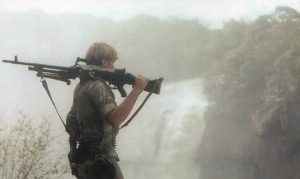 Vorster’s interest was to pressure Smith into getting a deal with moderate blacks to create a buffer between his border and more radical countries to the north where South African guerrillas of the Umkhonto we Sizwe, the Spear of the Nation, were being trained. Vorster had leverage as sanctions-bound Smith’s principal supplier of South African police manpower, guns, petrol and other necessities.
Vorster’s interest was to pressure Smith into getting a deal with moderate blacks to create a buffer between his border and more radical countries to the north where South African guerrillas of the Umkhonto we Sizwe, the Spear of the Nation, were being trained. Vorster had leverage as sanctions-bound Smith’s principal supplier of South African police manpower, guns, petrol and other necessities.
 But Smith was as recalcitrant as ever, threatening to arrest “terrorists” who showed up for a proposed second round of talks on home soil. On the bridge, his flamboyant defence minister P.K. van der Byl had his liquor trolley pushed over the line to loosen the tongues of thirsty participants. And it was downhill from there as the drink took effect.
But Smith was as recalcitrant as ever, threatening to arrest “terrorists” who showed up for a proposed second round of talks on home soil. On the bridge, his flamboyant defence minister P.K. van der Byl had his liquor trolley pushed over the line to loosen the tongues of thirsty participants. And it was downhill from there as the drink took effect.
Here is an extract from my book Mutoko Madness:
Fred Joubert couldn’t quite get it straight in his mind why anyone had to be nice to these communist lackeys. Why didn’t we just tug the train over to our side and arrest the whole bloody lot of them? Chuck them in jail. Who cared what the international community thought? We were already the devil incarnate to them.
South Africa was twisting our arm, I said.
“Our balls, more like,” said Joubert.
If we didn’t make a darn good effort to settle this with the moderates, Vorster would cut off our fuel.
“Our balls, more like,’ said Joubert.
I could see Joubert wasn’t getting into the spirit of dialogue, of detente, at all.
Once the talks had broken down irretrievably, the security details from both sides finished off the left-over crayfish tails and what little remained of the booze. Notepads and scribbles on bits of paper from the wastepaper baskets had lazy and angry doodles on them. One sheet of paper had NO, NO, NO writ large. Another from Smith’s side, had a doodle of a golliwog, like the one on the marmalade jar.
Everyone went home. The blacks headed back to the bush and so did we.
The fighting cost tens of thousands of lives before an agreement was finally reached that led to independence five years later in 1980. Despite enormous optimism for the first decade under Robert Mugabe, killings and rights violations were set to continue right up to the present day.
Smith, Van der Byl on his left, and delegates on their side of the doomed Peace Train. Mugabe wasn’t on the train. He was in protective custody in Mozambique as a result of bloody internecine rivalry in the nationalist movement.
For history buffs, this is also the 50th anniversary of the end of the Vietnam war and Richard Nixon’s Watergate departure.
As usual, plus ca change, plus c’est la meme chose. The more things change, the more they stay the same.

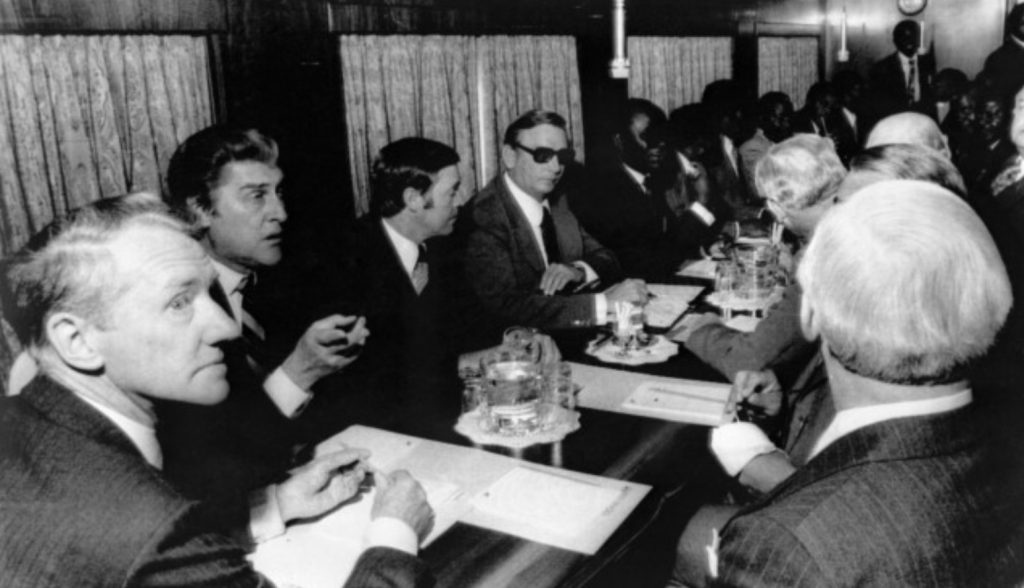
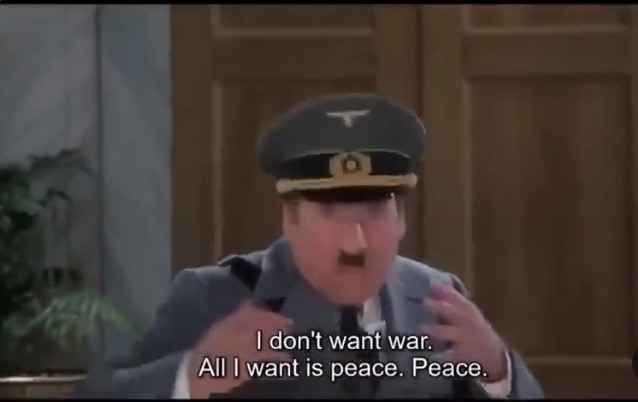
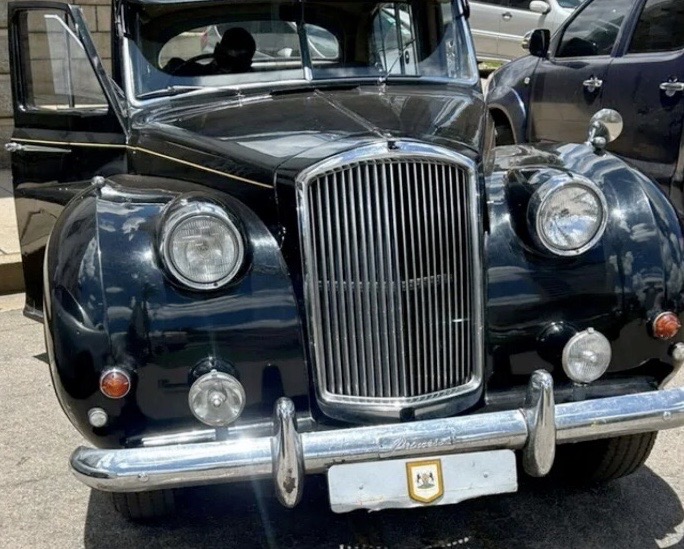
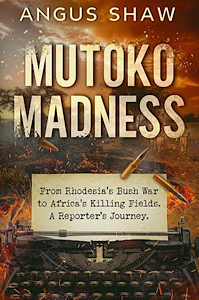


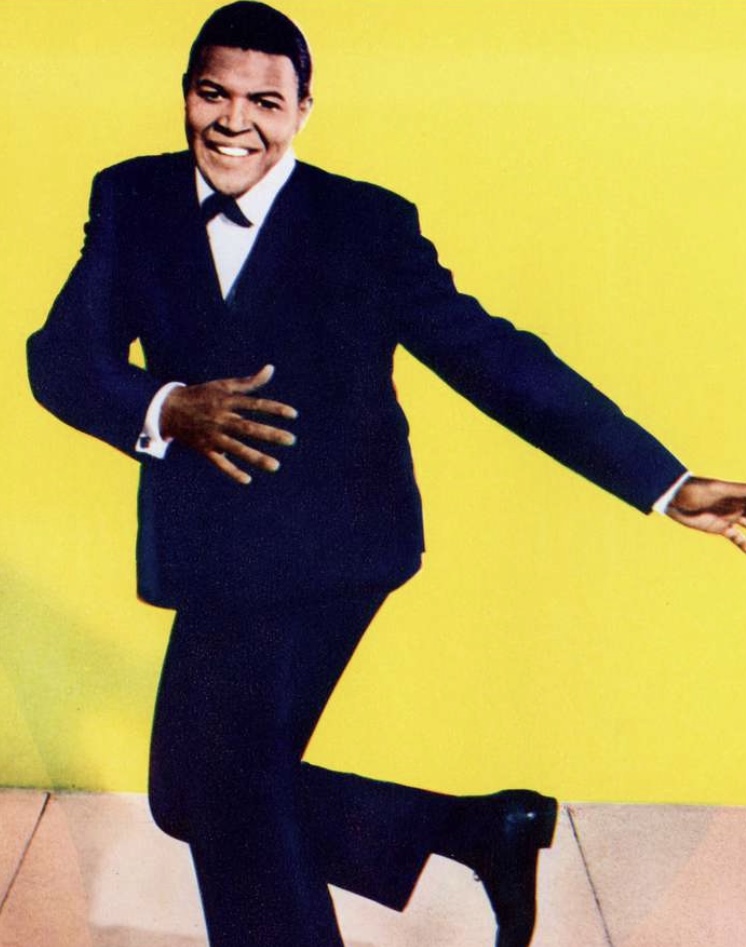


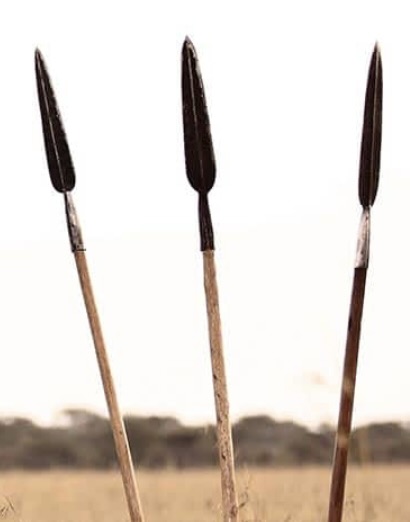
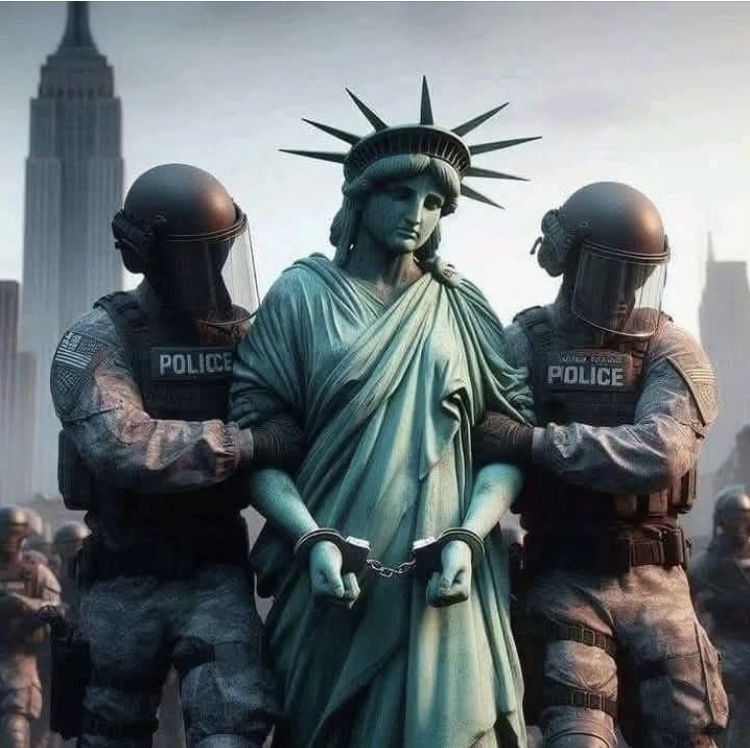
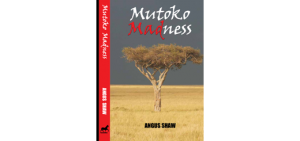
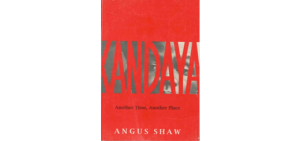
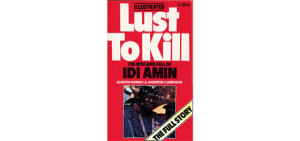
Sadly, all too true, mon ami.